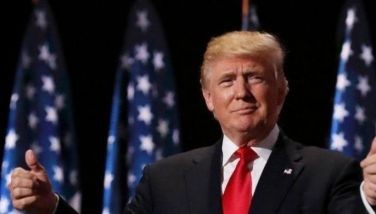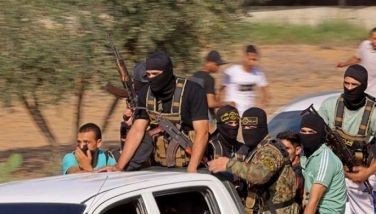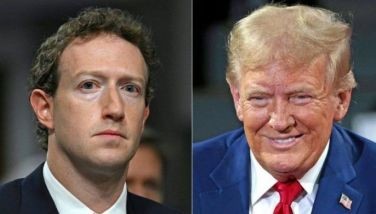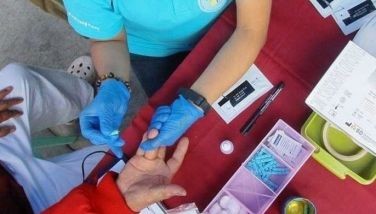Lacking other options, UN Security Council takes watchdog role in Ukraine war
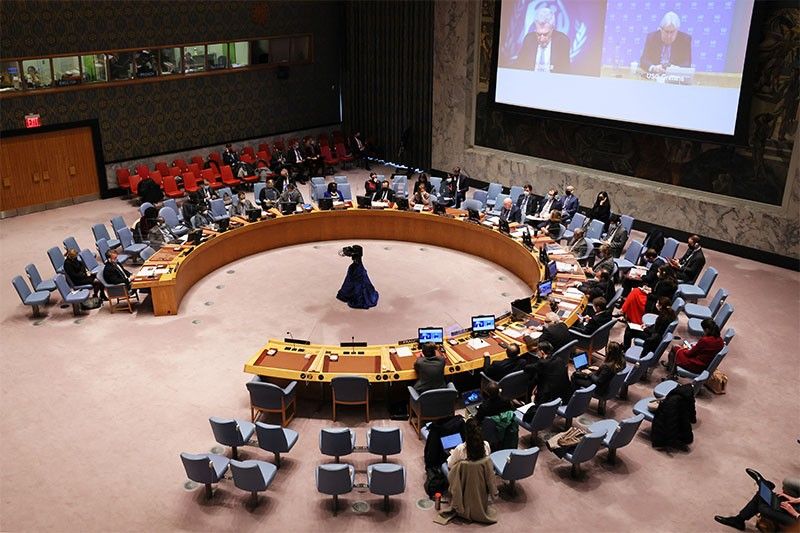
UNITED NATIONS, United States — Unable to assure global peace, the UN Security Council is consigned to a watchdog role in the Russia-Ukraine conflict, with little else to do but set more urgent sessions this week on the crisis.
After five meetings since Russia's invasion of its eastern European neighbor on February 24, the 15-member council will gather again on Monday for two sessions on humanitarian aid — one public and one behind closed doors.
"Exposing the situation in the Security Council, even if you know that the outcome is going to be stopped through a veto, is still worthwhile," said the European Union's ambassador to the UN, Olof Skoog.
"Pressure" is the aim, several council members told AFP, with representatives even vying to call for sessions. The United States and Albania joined together to convene the first meeting on the conflict, while France and Mexico are pushing for a resolution, though its future is unclear.
With its veto power, Russia — one of the five permanent members of the council that also includes 10 other members elected for two years — has the power to block any declaration or resolution.
As the founding document of the organization established after World War II, the UN Charter cannot oust one of the five permanent members even if the state violates the body's fundamental principle of not resorting to violence to resolve a crisis — as Russia stands accused of doing.
However, the charter does provide for cases in which the Security Council can take action.
Article 27 stipulates that a council member can abstain from voting when it is party to a conflict on which there is a vote. In practice, this doesn't always happen.
Russia has never abstained from a vote on Syria — deploying its veto some 15 times in 10 years — nor has the United States or Britain on Iraq, France on Mali or the United Arab Emirates over Yemen.
"There has not been any real appetite to go after" Article 27, said a Western ambassador on condition of anonymity.
'Privilege' of permanence
A spokesperson for British Prime Minister Boris Johnson recently said that expelling Russia from the Security Council figures among the "options."
But in reality, "no," it's not on the table, said another diplomat, also speaking on condition of anonymity.
Article 6 of the UN Charter says if a member "has persistently violated the Principles" of the document, it "may be expelled from the Organization by the General Assembly upon recommendation of the Security Council."
Therein lies the issue: veto-wielding Russia will never recommend its own expulsion to the 193-member General Assembly.
Such an attempt has only been made once in the history of the global body, in 1974, when several countries urged the Security Council to exclude South Africa, according to SC Procedure, a specialized news outlet.
The resolution received 10 votes in favor, but France, Britain and the United States vetoed, it added.
The permanent members, which also include China, sometimes "have each other's back," the Western ambassador said.
"They don't agree with all substance always, but they do agree that the privilege is something that sets them a little bit above the rest of us."
Under the impetus of the EU, the General Assembly — where there are no vetoes — had looked to succeed where the Security Council failed by adopting a resolution condemning Russia on March 2.
A record 141 countries from across every continent approved the non-binding text, with just five in opposition: Russia, Belarus, Eritrea, Syria and North Korea.
Beyond the council and the assembly, the UN has deployed other wings to try to help mitigate the fallout of the war.
The UN humanitarian affairs agency OCHA, the refugees body UNHCR and the World Food Programme have stepped up responses to the crisis, while the Human Rights Council recently backed the creation of an international commission of inquiry into abuses in Ukraine.
UN chief Antonio Guterres, who has long denounced the "dysfunction" of global governance, is working behind the scenes but to little avail so far, having offered mediation to Russia, which rebuffed any idea of the secretary-general going to Moscow, according to an official.
President Volodymyr Zelensky on Saturday secured Turkey's crucial backing for Ukraine's NATO aspirations after winning a US pledge for cluster munitions that could inflict massive damage on Russian forces on the battlefield.
Washington's decision to deliver the controversial weapons — banned across a large part of the world but not in Russia or Ukraine — dramatically ups the stakes in the war, which entered its 500th day Saturday.
Zelensky has been travelling across Europe trying to secure bigger and better weapons for his outmatched army, which has launched a long-awaited counteroffensive that is progressing less swiftly than Ukraine's allies had hoped. — AFP
Washington's decision to supply Ukraine with ATACMS long-range missiles is "a grave mistake", Russian ambassador to the United States Anatoly Antonov says Wednesday.
"The White House's decision to send long-range missiles to Ukrainians is a grave mistake. The consequences of this step, which was deliberately hidden from the public, will be of the most serious nature," he says in a statement. — AFP
President Vladimir Putin says Sunday that Russian forces had made gains in their Ukraine offensive including in Avdiivka, a symbolic industrial hub.
"Our troops are improving their position in almost all of this area, which is quite vast," he says in an interview on Russian television, an extract of which was posted on social media on Sunday. "This concerns the areas of Kupiansk, Zaporizhia and Avdiivka." — AFP
The regional governor says debris from a drone destroyed over the Russian region of Belgorod, which borders Ukraine, fell on homes and killed three people, including a young child.
The air defense system "shot down an aircraft-type UAV (unmanned aerial vehicle) approaching the city", says Governor Vyacheslav Gladkov, adding that the falling debris destroyed several homes.
"Most importantly, three people were killed, one of them a small child," he writes on the Telegram messaging app, accompanied by pictures of a house reduced to a pile of rubble behind red and white police tape. — AFP
Ukraine's air force says on Tuesday that it had destroyed 27 of 36 Russian attack drones overnight in the south of the country.
Ukrainian forces downed 27 "Shahed-136/131" drones in the southern Kherson, Mykolaiv and Odesa regions, the air force said on the messaging platform Telegram.
In all, Moscow had launched 36 of the Iranian-made drones from the Crimean peninsula, which Moscow annexed in 2014, it says. — AFP
The Kremlin claims on Friday Russian forces never targeted civilian infrastructure after Ukraine blamed Moscow for a missile attack that killed over 50 people in the eastern village of Groza.
"We repeat that the Russian military does not strike civilian targets. Strikes are carried out on military targets, on places where military personnel are concentrated," Kremlin spokesman Dmitry Peskov says in his daily briefing. — AFP
- Latest
- Trending

















